
BY DR. BAYNE FRENCH MD DC
When Chris Kresser writes an article titled How Industrial Seed Oils Are Making Us Sick (Feb 2019), I read it. Chris is the real deal and a Functional Medicine practitioner. I like this dude. In his article and in many others, the process of obtaining fat from seeds is detailed. It's all very complicated for a mountain person like me to understand, but it involves multiple steps of high heat, solvents, deodorizing, and chemical additives. None of which sounds favorable for our cellular machinery. And you are all amazing machines.
The result of kicking the crap out of seeds is an oil. A fat. Considered by many to be "heart-healthy." But are they? Ooo, suspense. I hear suspenseful music right now. Seriously, my kid is watching Chariots of Fire. The Big Fat Surprise by Nina Teicholz documents all the steps involved in how seed oils became designated as "heart healthy." It's fascinating and unfortunate.
Wanna do something fun? Just google "Are seed oils bad?" Like most things human, the myriad results are extremely polarized. And thus we are left to make determinations for ourselves. Crap. You might be thinking, "l just want someone smart to tell me what to do!" Well, in the absence of someone smart, I'll tell you...avoid seed oils.
But why? The organization bestowed with the health of our pumping organ, the American Heart Association considers seed oils Heart-Healthy. My God, what chance do we have? Rhetorical question. That means a question asked to make a point and not to get an actual answer. Sorry, that's mansplaining. Can we just please get to a perilous journey we took together through the world of Essential Omega Fats many months ago? I encourage you to review this scary experience for a basic understanding of fats in general.
There are three main types of fats: saturated, monounsaturated, and polyunsaturated. Most foods that contain fat have a mixture of these fats but are categorized by the type of fat that predominates. As an example, butter is considered a saturated fat but is also 30% monounsaturated and 5% polyunsaturated fats. Wild game meat fat, as determined by the University of Wyoming, is 45% saturated, 30% monounsaturated, and 25% polyunsaturated.
We're going to focus on polyunsaturated fats. There are two main types: OMEGA 6 (06) and OMEGA 3 (03). These two fats are chemically very similar but drive dramatically different processes in the body. They are termed "essential" because we must eat them. Sources include oils, nuts, seeds, algae, and animals.
Consumed 06 and 03 fats need to be converted to different compounds in our bodies. These converted forms are what exert biological actions. For instance, most eaten 03 does not help us. It must be converted to EPA and DHA. We each possess major differences in our ability to make this conversion. This has led some authorities to consider EPA and DHA also essential. They are only found in animals, and algae.
Essential fats have been studied A LOT. There are heaps of pre-clinical data on the biological actions of these fats. Pre-clinical basically means animal studies, rodents primarily. I may be the only one in Montana that routinely eats Columbian Ground squirrels. They steal so much of my organic duck feed they're like the size of cats. Sorry not sorry to you animal lovers but there is good news for you. In silico computer, modeling may replace the use of rodents in some pre-clinical study situations. I digress. Again. The rodent studies over decades are consistent on the detriments of 06 fats and the benefits of 03 fats. Clinical (human) studies, however, are far more inconsistent. In Essential Omega Fats, I outline 10 reasons for this inconsistency. Spoiler alert...#10 is "blah blah blah".
Mentioned previously was that most foods are a mixture of fats. Our native foods, meaning what we ate as hunter-gatherers, also had mixtures of fats. Here's what I consider a key point to understand...these foods, which drove the development of our biochemistry and metabolism, had much lower 06 and much higher 03 fats than what we eat today. Many authors, clinicians, and researchers have described the concept of a "mismatch" between our genes and our modern environment, and hypothesize this as being elemental in the development of disease.
Here are some key points to understand about polyunsaturated fats and seed oils:
- In most consumed food, there is way more 06 than 03. Even an egg has a 06 to 03 ratio of about 17 to 1. Canola oil (discussed later), widely promoted for its high 03 content, is 3 to 1 in favor of 06. An excerpt from Essential Omega Fats: "Given the ubiquity and low cost of 06 fats, their delicious nature with deep fried foods, and they being widely touted as "heart healthy", we are certainly not suffering from an 06 deficiency".
- Fish and other animals that ate their native foods (i.e. wild game, grass-fed cows, wild-caught fish, omnivoric chickens and their eggs, etc.) have a much more favorable 06 to 03 ratio. And better yet, possess the biologically active EPA and DHA forms of polyunsaturated fat.
- The process of extracting fat from seeds on a large scale requires many steps. These steps primarily underlie why seed oils are unhealthy. High temperatures, the use of hexane and other solvents, and further refinement like bleaching and degumming damage these delicate fats, which really stinks. I mean, they literally stink and thus need to be deodorized. Canola is healthy, in theory. It has a relatively higher amount of 03 fats. It's just likely damaged before you eat it. And in restaurants, subjected to high heat over and over, canola and other seed oils are particularly unhealthy.
- Damaged 06 fats mean they're oxidized. Refer to my previous article on oxidation for an explanation of this process. OXLAMS specifically refers to damaged 06 fats. These compounds are extremely inflammatory and promote disease in many ways.
- 06 fats drive the formation of inflammatory compounds. We needed these compounds, in small amounts, anthropologically, but is excessive with our modern diet.
- 03 fats drive the formation of anti-inflammatory compounds. We definitely need this, more now than ever.
Action items:
- Toss from your home the 3 S's and 3 C's: Soy, Sun, Safflower, Canola, Corn, and Cottonseed.
- Minimize processed and prepared foods.
- Minimize dining out.
- Minimize consuming animals that did not eat their native foods. Their meat has much higher amounts of 06 fats and possibly toxic metabolites of the seed oils they consumed.
- Cook with Extra Virgin olive oil, avocado oil, coconut oil, butter, ghee, lard, or tallow.
With the understanding that there are no large-scale, compelling human studies showing the detriments of modern seed oils, understanding basics of their actions and just how far they've deviated from our natural consumed fats may lend credence to advice to minimize their consumption.
I feel that avoiding processed seed oils and supplementing with 03 fats (fish oil) is right up there with fasting in the morning, minimizing carbs, and being in good cardiopulmonary conditioning as powerful modulators of health and longevity.
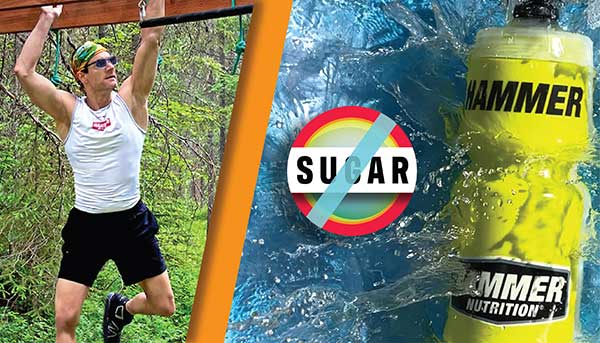
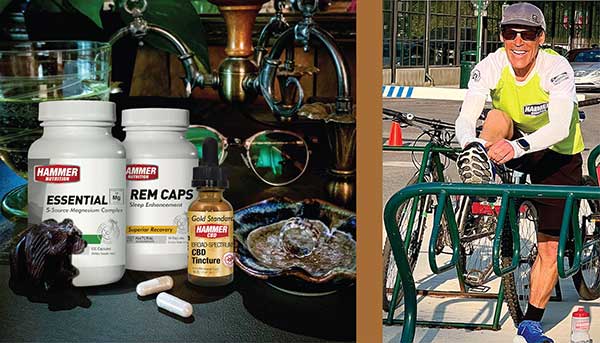

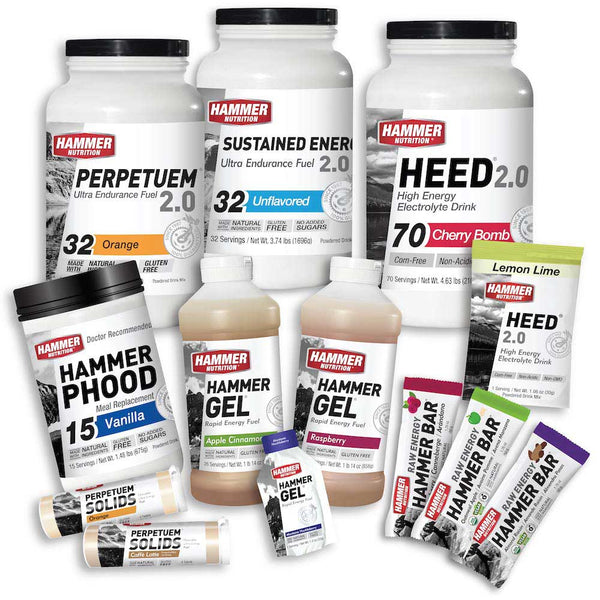


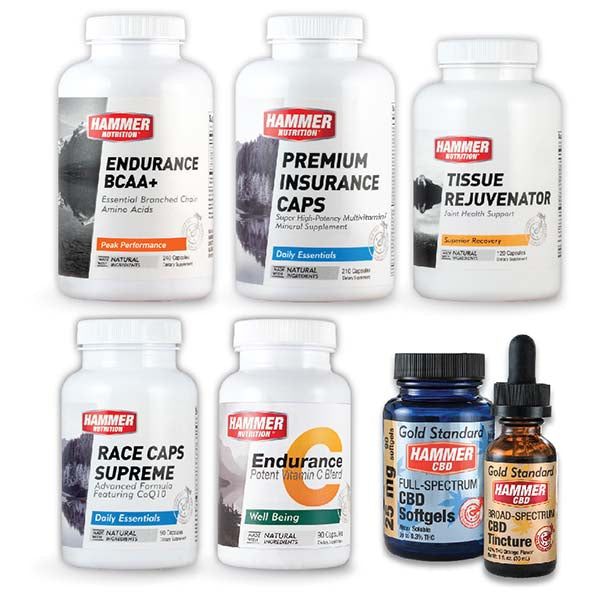

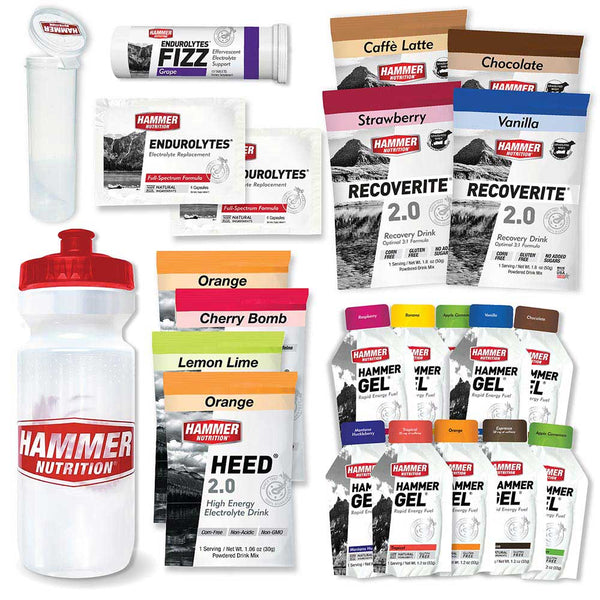
15 comments
I just read an article that stated cold pressed canola oil is “as healthy as olive oil”. Does cold pressing make canola oil “OK” to use, or is it still best to avoid because of the omega 6 to 3 ratio? Thank you.
———
Hammer Nutrition replied:
Research from April 2023 that was published in the jounal Nutrients journal used a system to rank edible oils based on their nutritional quality; not just on the fatty acid profile of the oils, but other components such as phytosterols and antioxidants. Using this scoring system, the paper concluded that virgin olive oil ranked first of the 32 oils judged. Canola oil, on the other hand, ranked 17th. As such, it would be difficult-to-impossible to conclude that cold-pressed canola oil is “as healthy as olive oil.” That, along with the higher O-6 to O-3 ratio of canola oil compared to virgin olive oil, the latter is still the clear winner. Cold-pressed oils are extracted by crushing the canola seeds slowly, while refined oils are typically made by heating and using chemical solvents, so in that sense, yes, cold-pressed canola is better than refined canola oil. Still, because of its O-6 to O-3 ratio, because we all need to lower our intake of O-6’s in favor of O-3’s, and because better options already exist (all things being equal, canola oil ranked far below virgin olive oil), we recommend severely-limiting-to-avoiding canola oil, even cold-pressed canola oil (SB).
I understand minimal use of seed oils. Any thoughts on expeller cold pressed oils . Glad to hear that Olive oil appears to be okay. Also saw an interesting article about Italian olive oil being “laced” with sesame and other oils.
———
Hammer Nutrition replied:
Hi Fred. Thanks for your question. The expeller process uses a press to physically squeeze the oil out of the seed, rather than using chemicals, so that’s obviously a good thing. However, the pressure and friction involved may create natural heat too high for it to technically be called “cold pressed.” Cold pressing usually involves a low-resistance expeller press that is done at a very slow rate. This allows the process to avoid friction and stay cooler. Additionally, as per one website reviewed, “the acid value is relatively low, so oil products are obtained after precipitation and filtration. This means that there is no need for any refinement.” This is obviously also a good thing. In that sense, yes, a cold-pressed canola oil product (for example) is better than a refined canola oil product, though a cold-pressed process is not usually used for oils such as canola oil. The main thing to keep in mind is that one of the major goals of reducing seed oil intake is to reduce overall omega-6 intake, while increasing omega-3, so it’s best to stick with extra virgin olive oil, while also following the other “action items” listed in Dr. French’s article. As far as olive oil being “laced” with undesirable oils, Dr. French discusses this in his article starting on page 26 in Endurance News #131 (https://cdn.shopify.com/s/files/1/0617/9192/8555/files/ENissue131.pdf). He writes, “Unfortunately, many extra virgin olive oils sold in the US are mixed with other oils including soybean and rapeseed. Tom Mueller wrote Extra Virginity: The Sublime and Scandalous World of Olive Oil, discussing this and other issues with olive oil.” Dr. French urges consumers to look for a seal on olive oil products that have passed the North American Olive Oil Association inspection and testing and have the “NAOOA Certified Olive Oils” seal on them. (SB)
Um Um, Columbian ground squirrel stew does sound rather heart y! Is there a favorable Omega 06 to 03 ratio? What is Robert W. thinking???
———
Hammer Nutrition replied:
Hi John, thank you for your comment! Haha, I’ve only had venison at his house. The typical western diet yields an omega 6 – omega 3 ratio of up to 20:1, while anything 4:1 or less is considered ideal. From a sustainability standpoint, I try to minimize omega 6 and maximize omega 3 intake as much as is I can. BDF
This is a great article. Have you read the studies on the Fatty 15 supplement? It’s an alternative for vegans (not me) and those affected by fish pill side effects (me).
———
Hammer Nutrition replied:
Hi Lana, Thank you for your comment. Vegan or not, reducing omega 6 intake from processed seed oils is priority #1. Increasing omega 3 is the next goal. BDF
i have read that palm oil is also inflammatory, should we avoid palm oil as well?
———
Hammer Nutrition replied:
Hello Scott, thank you for your question. Organic palm oil is high in vitamin e and other antioxidants and is thought to be beneficial for heart disease and myriad related conditions. It may be on the inflammatory list, but not near the top. Major inflammatory foods to avoid are processed meats, processed bakery items, bread and pasta, crackers made from white flower and of course #1 on the list is and an all processed/refined sugars (sorry, that includes alcohol too). If you are thoughtfully minimizing these in your daily diet, you’ll be ahead of the inflammatory response for the most part. BDF